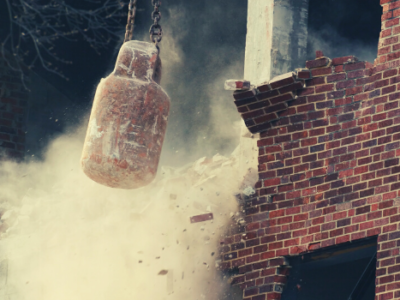Business Loss Damages Are Available When Your Property Is Condemned by the Government
February 4, 2022
By Douglas H. Flint
The U.S. Constitution protects private property rights. So does the Georgia Constitution, which guarantees every Georgia property owner that “private property shall not be taken, or damaged, for public purposes, without just and adequate compensation being first paid.” The government has the ability to take private property for a public use as long as just and adequate compensation is paid by the government when property is condemned. Many don’t realize however, that in a condemnation, the term “property” includes not only the real estate, but also the buildings and improvements, tenant leaseholds, trade fixtures and equipment, billboards and other signage, cell towers, access rights, air rights, easements, contract rights, and operating businesses.
When an operating business is impacted or damaged by a condemnation, the property owner, and sometimes his or her tenant, is allowed to seek additional compensation that is valued separate and apart from the land. Any type of commercial enterprise – from a home-based business to a major industrial operation – may be damaged by a government- taking of property. Business damages are available when a government condemnation ruins the business because the condemnation of the real estate makes it impossible to continue the operation of the business, or sometimes, when the business sustains damage to its operation but can continue to operate in a diminished capacity. Fortunately, a business owner or operator can recover business damages if: (1) It operates a business on the subject property as of the date of taking; (2) the loss caused by the taking is not remote or speculative; and (3) and there is “uniqueness” between the land and the business operated thereon.
The idea of a “unique” value that is different from and greater than the fair market value of the real property to be acquired in a condemnation case is the basis for business loss damages. The uniqueness concept may be based on either: (a) A situation in which real property has a unique or peculiar value to its owner in excess of the fair market value, or (b) a situation in which the property is uniquely suited for a particular business and the business suffers damage that is separate from the compensation for the taking of the real property.
Sometimes business losses are huge, and substantially outweigh the value that the property owner is entitled to recover for the loss of his/her land. The government often doesn’t realize (or doesn’t care) that a business, and its owners, employees, and others dependent on the business will suffer damages.
Both property owners and tenants are allowed to seek damages for business losses, but the rules are significantly different for each.
Business owners must raise the issue of their business damages when a government seeks private property – either in the pre-litigation stage or after a case is taken to court. A government will almost never offer business damages to a landowner without being forced to do so, and the well-represented landowner is the only one who can force the government to pay the appropriate business loss damages. This is why it is extremely important for landowners who operate a business on their land to seek professional help when a condemnation matter comes along.
In a case in which the business owner seeks business loss damages, the burden of proving those damages is placed on the owner. The law requires proof of uniqueness as mentioned above. Uniqueness is determined by three tests under Georgia law. The first is based on the viability of “relocation.” In other words, “does the business depend upon the location for its operation?” and if so, is there no comparable site within the local area to which the business may relocate? This standard is based on the specific elements of the property affected by the condemnation, such as certain access, traffic flow, signage, site improvements, and other physical aspects supporting the successful operation of the business.
The second uniqueness test is the “value to the owner” standard. In other words, can the property’s particular value to its owner be passed to a third party? This standard is usually applicable to a business providing revenue to its operator that may be contractual and therefore not transferrable to a new owner.
The third test is the “no market value” standard. This test is for circumstances in which the property is of a type not generally bought and sold in the market, and thus the property’s theoretical fair market value does not afford just and adequate compensation as required by the Constitution. The measure of business damages is not the amount of lost revenues or profits suffered by the business on a dollar-for-dollar basis, but rather the reduction in fair market value of the business before and after the taking that may be caused by such losses.
Business loss damages are typically proven using one or more valuation experts, as well as the business owner. It is not absolutely necessary that a business owner have been consistently profitable prior to the condemnation in order to recover business loss damages – because the standard is the difference in fair market value that can be shown to exist as a consequence of the business loss damages under one of the three tests discussed above. Georgia courts adhere to the principal known as “the right not to lose any more money” in determining business damages.
Discuss your property and business with an experienced lawyer if you are facing a taking by the government of any part of your land.
Douglas Flint is a senior partner at Flint, Connolly & Walker, LLP and focuses on representation of private property owners to protect and defend their property rights. He graduated from Emory University School of Law and has practiced in north metro Atlanta for the entirety of his career.

